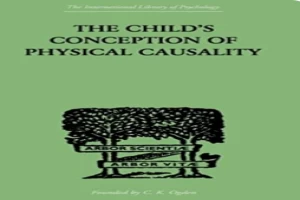Newly released
This book is new and will be uploaded as soon as it becomes available to us and if we secure the necessary publishing rights.

The Child's Conception of Physical Causality Book PDF
(0)
Author:
Jean PiagetNumber Of Reads:
96
Language:
English
Category:
Social sciencesSection:
Pages:
337
Quality:
good
Views:
1814
Quate
Review
Save
Share
New
Book Description
Our encounters with the physical world are filled with miraculous puzzles-wind appears from somewhere, heavy objects (like oil tankers) float on oceans, yet smaller objects go to the bottom of our water-filled buckets. As adults, instead of confronting a whole world, we are reduced to driving from one parking garage to another. The Child's Conception of Physical Causality, part of the very beginning of the ground-breaking work of the Swiss naturalist Jean Piaget, is filled with creative experimental ideas for probing the most sophisticated ways of thinking in children.
The strength of Piaget's research is evident in this collection of empirical data, systematically organized by tasks that illuminate how things work. Piaget's data are remarkably rich. In his new introduction, Jaan Valsiner observes that Piaget had no grand theoretical aims, yet the book's simple power cannot be ignored. Piaget's great contribution to developmental psychology was his "clinical method"-a tactic that integrated relevant aspects of naturalistic experiment, interview, and observation. Through this systematic inquiry, we gain insight into children's thinking.
Reading Piaget will encourage the contemporary reader to think about the unity of psychological phenomena and their theoretical underpinnings. His wealth of creative experimental ideas probes into the most sophisticated ways of thinking in children. Technologies change, yet the creative curiosity of children remains basically unhindered by the consumer society. Piaget's data preserve the reality of the original phenomena. As such, this work will provide a wealth of information for developmental psychologists and those involved in the field of experimental science.
Jean Piaget
Jean Piaget was a Swiss psychologist, born on August 9, 1896, in Neuchâtel, Switzerland. His first interest in zoology, when he was a young man and published an article in which he talks about his observations on the albino, has written many publications regarding mollusks and won the admiration of many, and by 15 years she had gained fame among European zoologists, as he studied zoology and philosophy and obtained He received his Ph.D. from the University of Neuchâtel in 1918. The psychologist and geneticist is best known for his theory of cognitive development, which looked at how children develop intellectually. Before his theory, children were seen as small adults, but Piaget proposed the idea that children think very differently. About the way adults think, and this theory has influenced developmental psychology and became a branch of it, and contributed greatly to the field of education, and was known as a pioneer in the constructivist theory, which indicates that people build their knowledge Actively drawing on their ideas and experiences, he began to show an interest in the natural sciences at an early age, at the age of eleven, beginning his work as a researcher when he wrote about the albino.
Read More
Book Currently Unavailable
This book is currently unavailable for publication. We obtained it under a Creative Commons license, but the author or publisher has not granted permission to publish it.
Rate Now
5 Stars
4 Stars
3 Stars
2 Stars
1 Stars
The Child's Conception of Physical Causality Quotes
Top Rated
Latest
Quate
Be the first to leave a quote and earn 10 points
instead of 3
Comments
Be the first to leave a comment and earn 5 points
instead of 3